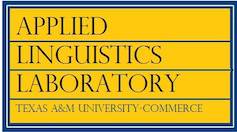Valutare l’apprendimento precoce di una seconda lingua: rilevanza degli studi longitudinali
DOI:
https://doi.org/10.21283/2376905X.11.195Keywords:
EARLY LANGUAGE LEARNING, LONGITUDINAL STUDY, AUTHENTIC ASSESSMENT, TEACHER EDUCATIONAbstract
Early foreign language learning—particularly in elementary school—is a fascinating and complex process, shaped by the age of the students, the context, the school’s specific academic objectives, and by the pedagogical approaches used. Age is one of the most influential variables in the development of linguistic competence, and instructors should attend to the cognitive and emotional development of students in choosing age-appropriate teaching approaches, activities, and materials. Assessing outcomes of early foreign language teaching is also a delicate process: teachers should use suitable instruments that permit an authentic understanding of both the added value of early language learning as well as that informs instructors on how to support learning over time. This article presents the implications of the results of several longitudinal studies that monitored and evaluated learners’ competence development and offered points of reflection on their learning processes.
Downloads
Published
How to Cite
License
Copyright (c) 2020 Lucilla Lopriore

This work is licensed under a Creative Commons Attribution 4.0 International License.


